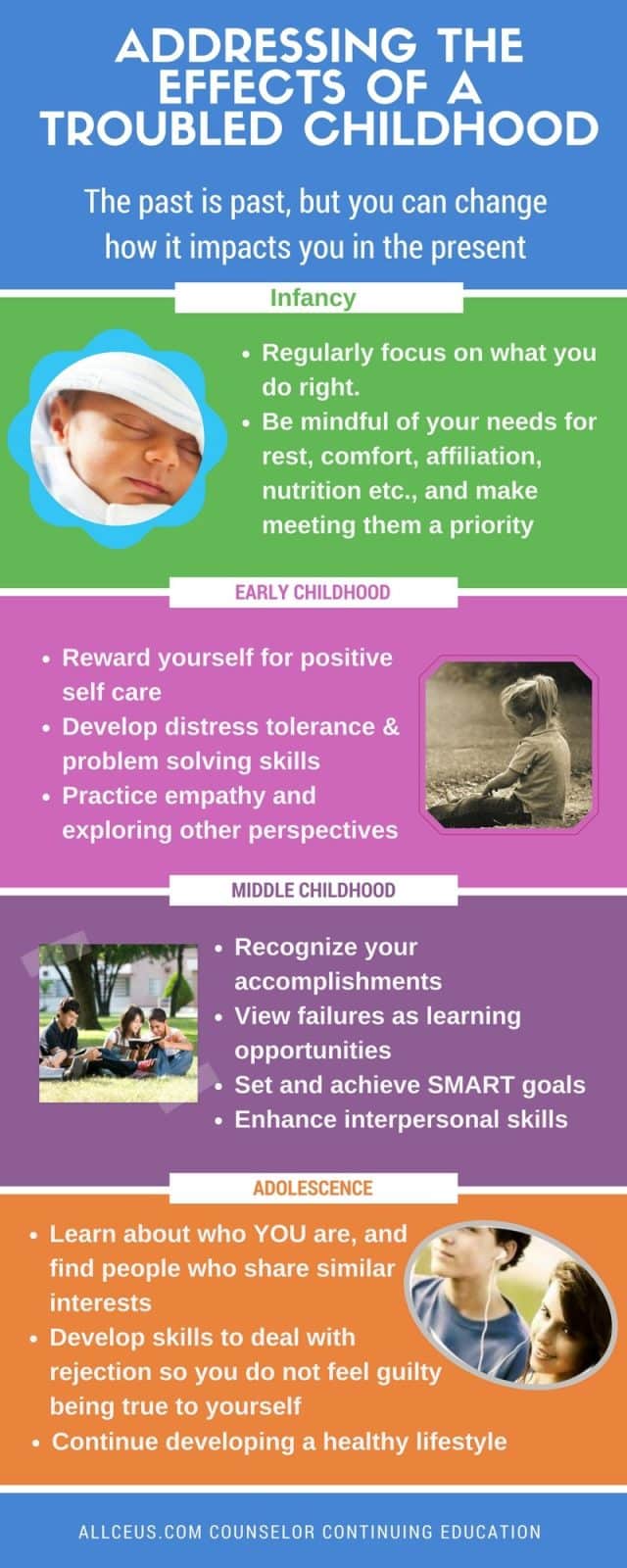
From infancy through adolescence we develop our ability to form healthy relationships, form our identity and self-esteem, develop a sense of self-efficacy and learn how to create and achieve our goals. When any of these processes is disrupted, it can lead to relationship, mental health or addictive problems later in life.
During infancy, the quality of the relationship with the caregiver is characterized by trust, safety and security. It is determined by the caregiver’s response to the infant when the infant’s attachment system is ‘activated. ’ A sensitive/responsive, loving, consistent caregiver produces a secure, positive attachment. Beginning at six months old, infants come to anticipate caregivers’ responses to their distress and shape their own behaviors accordingly (eg, developing strategies for dealing with distress when in the presence of that caregiver) A positive relationship is a powerful predictor of a child’s later social effectiveness and emotional happiness.
Effects of Secure Attachment
- Learn basic trust, which serves as a basis for all future emotional relationships
- Develop fulfilling intimate relationships
- Maintain emotional balance
- Feel confident and good about themselves
- Enjoy being with others
- Rebound from disappointment and loss
- Share their feelings and seek support
- Explore the environment with feelings of safety and security, which leads to healthy intellectual and social development
- Develop the ability to control behavior, which results in effective management of impulses and emotions
- Create a foundation for the development of identity, which includes a sense of capability, self-worth, and a balance between dependence and independence
- Establish a moral framework that leads to empathy, compassion, and conscience
- Generate a core set of beliefs
Infancy Developmental Stuck Points
If the child's caregiver does not respond in a way that meets his basic food, shelter, safety, and love needs, he may develop:
- Inability to trust self or others
- Reliance on others to tell them what they need
- Lack of a sense of worthiness for basics
- Discomfort with and craving of attention
- Irritability/anxiety
Establishment/Re-Establishment of Trust and Attachment
Parents need to provide
- Consistency
- Care: Understanding and ensuring basic needs are met
- Compassion: Being calm and accepting of the child’s emotions and needs
- Compassionate redirection: Add. Don’t just subtract Give the child an alternative when she is doing something you don't want her to.
View the Counseling CEU course for this presentation.
A more detailed counseling CEU course based on Counselor Toolbox Podcasts 85-92 can be found here
This course is also included in our unlimited CEU packages.
